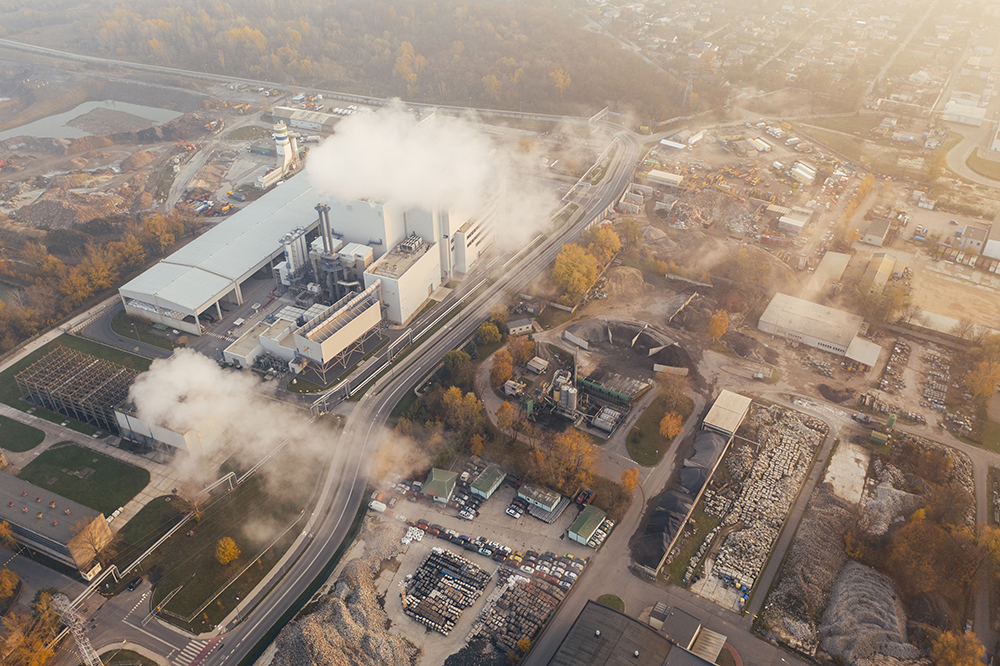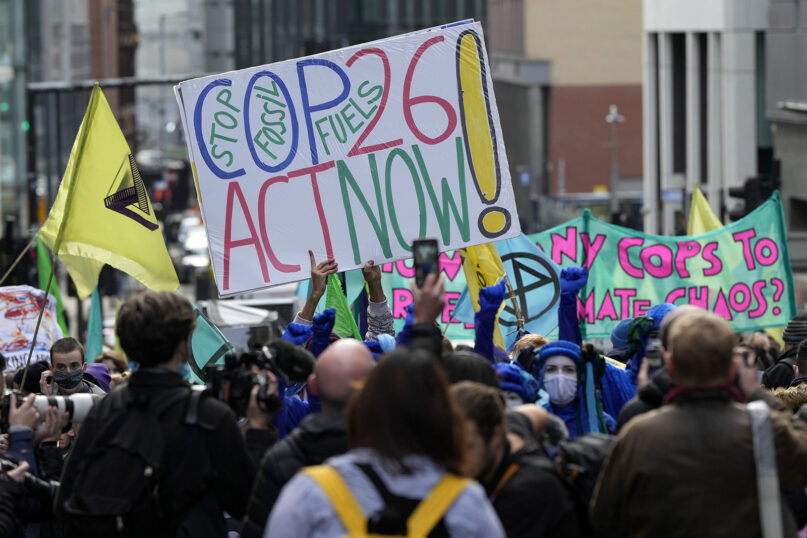(RNS) — As world leaders meet in Glasgow, Scotland, I am depressed by the inability of nations to deal with the coming climate catastrophe.
The fault is not entirely on the heads of world leaders. They are only responding to citizens who are more worried about today than tomorrow. People are not convinced of the need to sacrifice their present comfort to keep their grandchildren from living in a wasteland. My own generation — those born in the aftermath of the Second World War — has shown a shameful willingness to enjoy the most prosperous time on Earth and leave a mess for future generations.
In the past, humans could cut down forests and kill game, and the Earth could heal itself, given a century or so. The damage of our time, however, will be permanent, as ice caps and glaciers disappear, coastal areas flood and thousands of species go extinct.
Time is running out. Scientists warn of tipping points past which climate change will be catastrophic and irreversible. A disappearing ice cap will alter jet streams and weather patterns. Some areas will experience droughts while others will flood. The ice covering Greenland and Antarctica will slide into the sea and raise sea levels suddenly and dramatically. Arctic tundra will unfreeze, releasing methane gas, which will further accelerate global warming.
RELATED: As COP26 conference gathers, faith-based environmentalists fight ‘eco-grief’
It will take eons for the Earth to recover.
As islands and coastlands disappear, climate refugees will try to find somewhere safe to go.
Every honest scientific study tells us that we must get to zero emissions as soon as possible, but Republicans in Congress and statehouses prefer to sabotage Democrats’ efforts than save the world. A hundred years from now, historians will curse us as the most selfish stewards of the planet in history. We were warned by scientists and religious leaders but refused to act.
I am close to despair and happy that, at 76, I will not live to see the climate disaster that is coming.

Photo by Marcin Jóźwiak/Creative Commons
There are, however, three signs of hope.
First, science and technology are providing the tools to reduce greenhouse gases (including methane) and some progress has been made. What is lacking is the political will to meet zero carbon emissions before it is too late.
Solar power and wind power as sources of electricity are now economically competitive and becoming cheaper. But for this to work, the electrical grid must be upgraded and electrical storage facilities created. Nuclear power is also safer than previously.
Electric vehicles are also becoming cheaper and are getting ready for mass production. And since speeding cars are energy inefficient as well as unsafe, states should also install radar and cameras on highways to enforce speeding laws. Every GPS should sound an alarm when a driver is exceeding the speed limit and notify the police so the driver can be ticketed.
Insulating homes and buildings is energy efficient and cost effective. LED lights are catching on. New forms of cement are being invented, which will reduce carbon emissions in construction.
Agriculture is another area where sustainable methods are being discovered, which may also reduce the costs to farmers. Less plowing, for example, keeps carbon sequestered in the ground. More frequently moving grazing herds protects land and grasses. Goats can reduce undergrowth in fire-prone areas where controlled burning is too dangerous. Seaweed farms gobble up CO2 faster than trees and provide feed for animals. Some seaweed even reduces greenhouse gas from cattle. And even insect farming can become a green source of protein for animals and humans.
All these advances need further research, development and support until they can prosper in the marketplace.
A second source of hope is the almost unanimous support for doing something from religious leaders of all faiths. For once, religion and science are united against a common enemy rather than fighting each other. Science can provide the knowledge necessary to surmount this crisis, but only religion can motivate people to the self-sacrifice necessary to win this battle.
Ahead of the COP26 climate summit, Pope Francis and global faith leaders issued a joint statement calling for urgent action on behalf of the environment. Numerous faith groups descended on the Glasgow meeting to reinforce that message.
RELATED: Pope Francis, faith leaders call for action ahead of COP26 climate summit
Third, what gives me hope is the young people who recognize that their futures are on the line. They will have to live with the planet whose viability is being determined right now. They agree with Greta Thunberg — enough “blah, blah, blah.” What is needed is action. I fear that if sufficient action is not taken, the young will give up on democracy and turn to ecoterrorism as a last resort.
I still have more despair than hope. I fear that it is too late and we lack the political will to do what is right. That is the political scientist half of me talking. But the person of faith should have hope, although I see more sin than grace active in global warming.
We need a miracle, so I am going to start praying harder.






